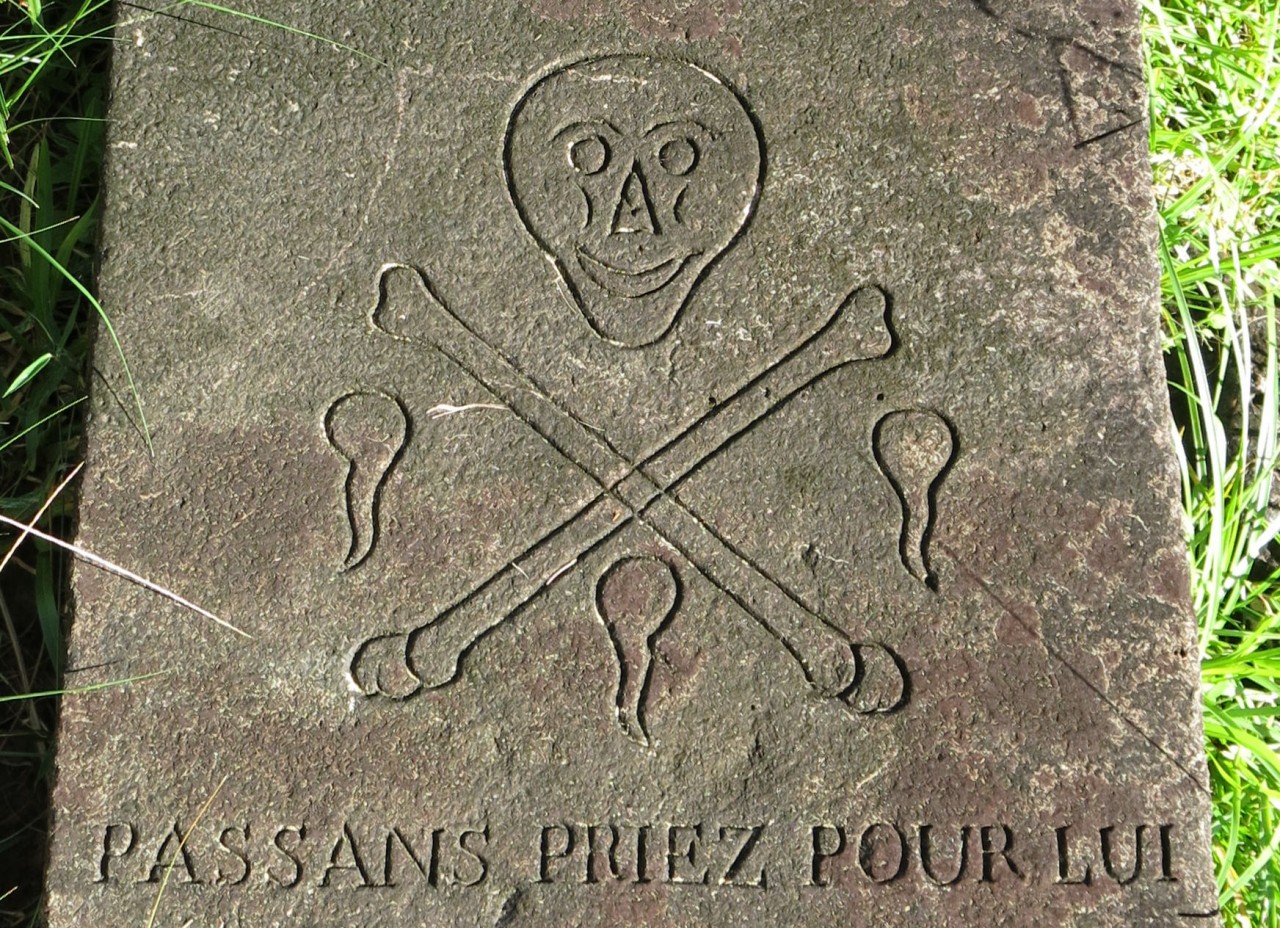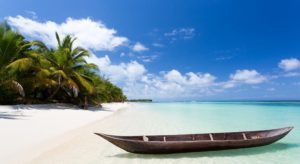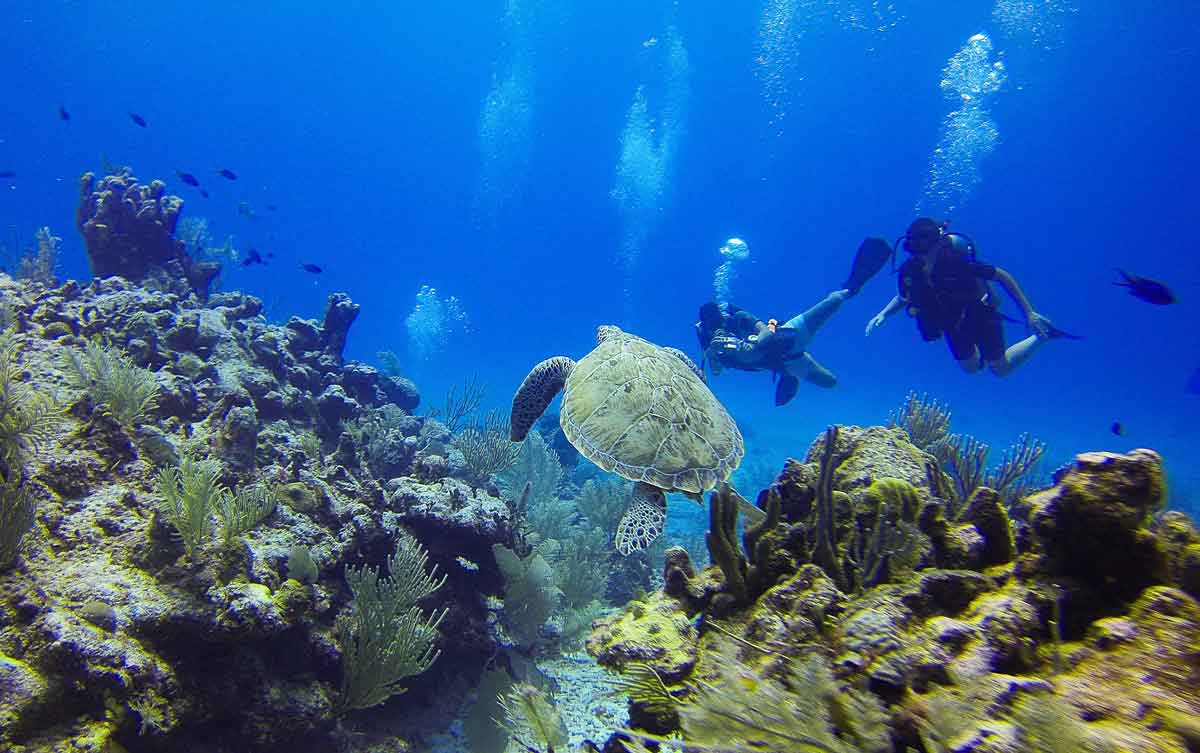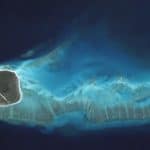The island of Sainte Marie
The Sainte Marie Island, also Nosy Boraha is a popular tourist destination in Madagascar.
Located in the northeast of Madagascar, the island of Sainte Marie is a 49 km long and 5 km wide tropical paradise, an idyllic landscape with small fishing villages and pristine beaches. Authentic and preserved, it promises you a change of scenery!
The former pirate hideaway has lush vegetation and quality marine life.
In fact, the lagoon of the island has important coral constructions that allow it to have a preserved natural heritage.
Protected from sharks, it is also the refuge of humpback whales that come here to breed and give birth during the mating season.
The island is full of stories and different activities to discover with family and friends.
Here you will find exceptional dive sites, dream beaches and forest trails that will delight nature lovers.
The Sainte-Marie Island is an authentic place, still spared from mass tourism, a true haven of peace.
The Pirate Graveyard and Buccaneer Island
Near the Capital Ambodifotatra are located on the Pirate graveyard Graves marked with skulls.
Not far from the sea routes where the returning ships loaded with precious goods from India and China, 
For two centuries the island was the hideout of pirates
The wrecks of sunken ships lie off Ambodifotatra, the capital of Sainte-Marie.
Located in the heart of the bay of Ambodifotatra. Ile aux Forbans is the home of legendary buccaneers like John Avery, Christophe Condent, Thomas Tew, William Kidd and Olivier Le Vasseur. Around 1720, the island of Sainte-Marie became the home port of about twenty ships and the dwelling place of a thousand pirates.
The Pirate graveyard or cemetery of Saint-Pierre is located in front of the small Madame island, in front of the first church of Madagascar (1857) and the island of the privateers... A site full of history, evocative names that will make you dream of the adventures of the privateer, among others.
Privateers, corsairs, pirates; a confusing collective term
Pirates are independent predators of the seas, they attack everything that comes within their reach and that contains interesting and valuable cargoes.

The pirates have spread in the Indian Ocean, mainly in the east of Madagascar and also in Reunion.
The privateers, for their part, received a letter of marque or commission from their sovereign authorizing them to attack enemy merchant ships.
Buccaneers were the scum of the Caribbean and the Gulf of Mexico, sometimes privateers, sometimes pirates.
The island of Sainte Marie was settled at the end of the 16th century by famous pirates such as Thomas Tew, Thomas White, La Buse, David Williams, etc., who attacked ships and merchant fleets loaded with spices and treasures from India.
The Forbans Island (Bay of the Forbans)
What an evocative name that takes us on romantic adventures.
On this circular and tiny island have certainly passed many criminals and privateers, including La Buse, Thomas White, David Williams, John Avery, Thomas Tew, to name just a few of the most famous of these " ocean skimmers " active in the Indian Ocean at the beginning of the 18th century.
On this island the booty was divided and pirate meetings were held.
Many of them will be based on Sainte Marie settle, many traces of this history have been preserved in Sainte-Marie. For example, lie in the Forbans Bay, only a few meters deep, still several dozen authentic pirate ships.
Refuge of pirates at the beginning of the 18th century
Sainte-Marie is located on two important 17th century trade routes: the Red Sea and the Indian Ocean.
Even then the population was hospitable, food was abundant and no European power held the island.
As the century progressed, the nearby region became especially popular with pirates, while the Caribbean, until then a favorite gathering place for international privateers, became too dangerous.
More generally, European nations no longer tolerated piracy and encouraged the hunting of pirates through their naval patrols in Caribbean waters.
The rumor of the easily acquired riches made in the Indian Ocean spread across the seas, the enthusiasm for these havens was so great that the European nations were concerned about the impact and the commercial and geopolitical role of this area they did not control and offered amnesty to the pirates who would repent and return home.
The island, pacified by the Royal Navy and occupied by the French as early as 1750, became a French colony around 1820-1822.
There are still many cemeteries of prohibition on the island.
Libertalia-the utopian pirate republic
How the democratic republic of libertalia it seemed that the ideals of equality, freedom and fraternity would become reality.
In this excerpt from the famous General history of the most famous pirates (London, 1724-1728), the author of the extremely famous Robinson Crusoe (1719) depicts the adventures of Captain Misson, "the meekest man in his way who would ever have sunk a ship or slit a throat," and his accomplice, the Heretic Carraccioliwho tired of ruling the seas and decided to settle in Madagascar to establish an egalitarian republic while continuing to plunder ships that passed within their reach.
Property was abolished, resources were pooled; class, gender, and racial distinctions disappeared.
Libertalia was founded under Louis XIV by two men who had broken the ban:
Frenchman, Captain of La Victoire, a fearsome warship with 30 guns, former officer 
After dropping anchor in Madagascar, they convinced the crew to create the ideal society.
According to some authors, this colony was much more than an asylum for pirates and privateers: it was a true political, social and philosophical utopia, the modern equivalent of Atlantis or Eldorado
However, the dream will be short-lived.
Île aux Nattes and Île aux Sables
Off the south coast are the tiny Île aux Nattes and Île aux Sables lined with coral reefs and populated by sea turtles.
Île aux Nattes, the essence of tropical paradise
South of Ambodifotatra lies the Ile aux Nattes, a small paradise island of 2.5 km long, still preserved in its natural state, without any transformation and without road infrastructure.

The origin of the name would come from a wood, "nato", which was once used for the construction of ships. Today it has completely disappeared from the island.
One could also think that the name is related to the beautiful mats that the women of the island weave thanks to the leaves of the pandanus.
The island is located south of the island of Sainte Marie, separated from the island of Sainte-Marie by a magnificent lagoon with clear and blue waters that completely surrounds the island and separates it from the Indian Ocean by an important and magnificent coral reef.
On the Ile aux Nattes there is an endemic Orchid ( Eulophiella Roempleriana), which blooms in September and October and lives in the swampy areas and on the Pandanus.
Its characteristic spine can measure up to 1.50 m. The very rare species on a botanical journey are on the program.
One of the characteristics of the island aux Nattes is the existence of the Blévec lighthouse, from which the view is magnificent and extends over the reefs and the east coast.
The Ile aux nattes is a must for any visit to Sainte Marie. Once you cross the island in a traditional pirogue, with your hair in the wind, the scents of tropical flora promise you a unique moment during your exotic journey.
These excursions are suggested by the hotel through our specialized service providers and should not be missed.
Ilots aux sables
The "îlots aux sables", consisting of three coral islands, are located 4 km from the east coast of Sainte-Marie. As the name suggests, this islet is all sand. You will find all kinds of shells
The islets are accessible by boat from Sainte Marie. The lagoon with beautiful coral bottoms surrounded by sand, the islets represent the ideal place for diving.
According to local customs, it is forbidden to come there on Tuesdays and Thursdays. Pork and bast are also taboo there.
The natural pools (piscines naturelles)
In the extreme north of the island, discover the rugged coast of Sainte Marie and its majestic waves, interspersed with natural pools for a regenerating swim.
A magical place, live this feeling of being at the end of the world.
It is not just one, but several "natural pools", these seawater pools about a hundred meters long are formed by a rocky barrier against which the waves crash into a sheaf of foam before turning into a peaceful expanse.
The natural pool of Antsarikelitry is a sacred place where offerings are made by throwing coins into the hollow of a rock on the occasion of a vow.
The "pool" of Antsarirabe, has calm and clear water, further south there is a small protected lagoon at the place called Satsikôza.
Nearby, on a hill, a sacred pole or "Fanasina" is built, exactly at this place leads the "Lojoharo" or sorcerers perform the ritual of resacralization in the case of a desecrated sacred place.
Therefore, it is preferable to be accompanied by a local before entering these sites to learn about the nature of the "Fady" (Taboo) to inform.
The forest of Ikalalao
The Ikalalao forest is part of the three forest massifs of Sainte Marie with Ampanihy and the forest of Ambohidena.
It is a rainforest and you can see there at the height of the Antanandava waterfall not far from Maromandia penetrate and cross the entire forest to join the East coast of the island to connect.
The route is hilly and punctuated by magnificent panoramic views: once at the top, there is a breathtaking view to the west of the Pointe à Larrey and of the magnificent lagoons to the east.
Lush green vegetation, characteristic of the humid forests of eastern Madagascar, dominates the landscape.
A true Reptile sanctuary houses both the smallest and the largest chameleon in the world: the Brookesia minima and the great Parsoni chameleon. Presence of the Pardalisfurcifer chameleons, of the Parsoni Calumna, of the Phelsuma madagascariensis.
The waterfall Antanandava
A combination of water and nature.
To discover this place, just take the northern road, about ten kilometers from the town of Ambodifotatra.
For a refreshing walk, think about a trip to the beautiful waterfall Antanandava; a quiet corner, a little wild and preserved. A small path will lead you to the foot of the waterfall.
Let yourself be seduced by the charm of the place.
The Ampanihy Bay
On the east coast of the Sainte-Marie Island lies the beautiful Ampanihy bay.
Starting point for a traditional pirogue ride through a huge, well-preserved mangrove swamp: small lagoon channels.
The bay of Ampanihy is also a long white sandy beach, a lagoon with emerald sea.
The bay of Ampanihy hides a magical place.
In this vegetable cathedral, herons and egrets flush out crabs and small fish. No sound except the muffled roar of waves breaking on the coral reef in the distance. It is one of the most popular visits to Sainte Marie.
The Antanandava waterfall is surrounded by a tropical forest. On the east coast, traditional pirogues sail on the lagoon of Ampanihy Bay.
A heavenly island in the heart of the Indian Ocean
The island of Sainte Marie, also called Nosy Boraha, is a popular tourist destination in Madagascar.
The former pirate hideaway has lush vegetation and a high-quality underwater world. In the 
Protected from sharks, it is also the refuge of the Humpback whales, which come here to breed and give birth during the mating season.
The island is full of stories and different activities to discover with family and friends. Here you will find exceptional dive sites, dream beaches and forest trails that will delight nature lovers.
Watch the humpback whales of Madagascar
As Main migration destination for humpback whales you can not get to Sainte Marie without making the whale voyage.

Do not miss the opportunity to make this unforgettable encounter!
Every year, from mid-June to late September, humpback whales leave the cold waters of Antarctica to find themselves in the Sainte Marie Channel.
The purpose of this migration by the hundreds is to court, reproduce and give birth to calves.
"The dance of the whales", accompanied by melodious songs, is a unique experience to be had at this time of year. This Whale mammals ( Megaptera Novaengliae ) have large pectoral muscles.
They measure more than 14 meters and weigh about 30 tons each.
Encounter with the whales
You are invited to discover amazing marine fauna by watching humpback whales at sea.

During these 3 months (July to September), occupied only by their love games, the whales make incredible leaps over the water, or hit the surface with their pectoral fins, or probe and show their flukes, or come to the surface to observe what is going on, and later in the season the mothers with their whale calves will touch you....
An unforgettable experience that must be experienced !
Diving and snorkeling on Sainte Marie
Sainte Marie offers exceptional spots for aquatic fauna , you do not have to be an experienced diver to appreciate the biodiversity of the island.

The Diving world fascinates you, if you are looking for a new and unique emotion and experience, immerse yourself in Sainte Marie. There are several interesting places to discover not forgetting the sand islands.
The most beautiful dive sites on Sainte Marie
SERAPIS: Located just outside the city, we visit the remains of the ship Serapis, which sank in 1781.
On the site are still five huge cannons with cannonballs and rum bottles. The anchor, which has an impressive size, marks the place of the shipwreck.
RAYS PALACE: 10 km from the channel, a wreck of a small fishing boat gathers an amazing diversity far from the coral reef: you will find large pelagic species next to gigantic stingrays, schools of trevally and barracudas and, with luck, magnificent eagle rays. A deep dive in the middle of the big blue that will amaze the lovers of immensity.
BARRACUDA Island: Barracuda consists of a trio of small mounds covered with life at a depth of about 30 meters.
The large number of scorpion fish guard the site with attention, huge lobsters hide under the rocks to escape the cravings of fishermen, and octopuses change the colors of the landscape.
Between the hills, a modern pirate has deposited dozens of bottles, attracting small fish and, of course, their predators par excellence, the barracudas.
ISLAND OF TREASURES: This underwater mountain, rising from a depth of thirty meters, looks like a pirate's treasure.

On its summit is a large marbled moray eel that has taken up residence in a barrel sponge.
All around you will find green turtles, guitar rays, octopus and a variety of nudibranchs.
Schools of surgeonfish complete the picture by dancing around the hoard.
ÎLE AUX NATTES: Just outside the lagoon of Île aux Nattes, this reef less than twenty meters deep resembles a treasure hunt. Remarkably large, the diver's task is to inspect all the rocks in search of hidden treasures.
He will surely come across several stingrays, guitars or torpedoes, lobsters and nudibranchs trying to hide.
The reef is also the passage point of several green and hawksbill turtles, which can be tracked without much fuss.
If you are lucky, it is even possible to see some mako sharks.
Other places of interest on Sainte Marie
In addition, you can be driven through the mangrove in a dugout canoe, the museum of the Ile Madame visit the Lighthouses Blevec and Eiffel visit and much more.
Saint Marie can be scheduled as a connecting tour or program with this tour upon request.
















